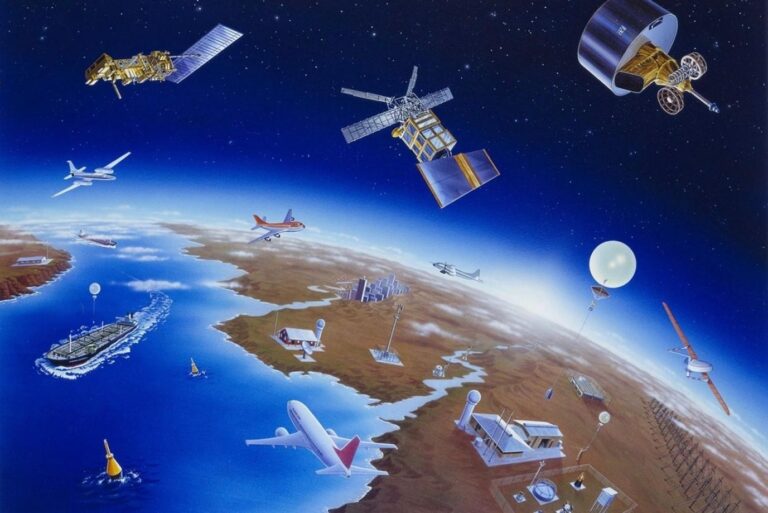The WMO is calling on the International Telecommunication Union (ITU) to protect the radio frequency bands that are relied on to create weather forecasts, early warnings, climate monitoring and space weather predictions, when it updates the global Radio Regulations treaty governing radio spectrum and satellite orbits at the World Radiocommunication Conference (WRC-23), which runs from November 20 to December 15 in Dubai, UAE.
Prof. Petteri Taalas, Secretary-General of the WMO, said, “Access to the radio frequency spectrum is critical to the meteorological and hydrological infrastructure that underpins weather and related environmental services worldwide. Satellites, weather radar, radiosondes, hydrological observing systems, and drifting buoys all operate based on radio or microwave transmissions. The safety of life and property depends on weather and environmental forecasts. Extended warning times for severe events enable citizens, civil authorities and first responders to act.”
WRC-23 has been organized by the International Telecommunication Union (ITU) and runs from November 20 to December 15, in Dubai, United Arab Emirates. According to the World Meteorological Organization (WMO), these radio frequency bands must be protected from harmful interference in the face of increased competition from emerging technologies. At the conference, WMO is appealing to ITU members to respect the meteorological community’s requirements for radio-frequency allocations and regulatory provisions. Specifically, the WMO finds it essential to fully apply Article No. 5.340 of the Radio Regulation, which prohibits all radio emissions in specified frequency bands between 1400MHz and 252GHz. Weather, water and climate research and operations all depend on preserving these as emission-free bands. From a meteorological and climate-monitoring perspective, the most critical issues concern the measurement of sea surface temperature and the observations of space weather, the WMO states. Sea surface temperature (SST) is a vital component of the climate system, with a major influence on the interaction between oceans and the atmosphere. SST, as one of the main drivers of ocean circulation, is crucial for numerical weather and ocean prediction models. The 6/7 gigahertz (GHz) frequency range – corresponding to peak SST sensitivity – is currently being used for passive ocean remote sensing from satellites.
 One of the items on the WRC-23 agenda, 1.2, proposes the identification of frequency bands for international mobile telecommunications (IMT) within the 6/7GHz range, even though studies demonstrate that SST measurements could be severely hindered by such deployment.
One of the items on the WRC-23 agenda, 1.2, proposes the identification of frequency bands for international mobile telecommunications (IMT) within the 6/7GHz range, even though studies demonstrate that SST measurements could be severely hindered by such deployment.
To mitigate this risk, WMO has identified other potential bands for SST measurement that could be used in combination with the 6/7GHz range. To ensure long-term continuity, WMO is urging administrations to consider, at WRC-23, new primary EESS (passive) allocations in the 4.2-4.4GHz and 8.4-8.5GHz bands for SST measurement.
Alongside this, the organization points out that space-weather observations are essential for the detection of solar events which can cause severe disruptions to critical infrastructure both on Earth and in space, resulting in radio blackouts, damage to satellites, perturbations in power grids, and increased radiation exposure on trans-polar aircraft routes. Despite the need to anticipate hazardous space weather events, the current treaty contains no recognition or provisions related to space weather observations. The WRC-23 is set to discuss appropriate recognition of space weather sensors in the Radio Regulations.
WMO is also advocating for a two-step approach. Step one is to define space weather in the context of the Radio Regulations and associate space weather with the appropriate “radiocommunication service” under which space-weather systems may operate – namely the meteorological aids (space weather) service, or in short: MetAids (space weather). The second step will develop a new WRC-27 agenda item proposing new MetAids (space weather) allocations in frequency bands used by operational space-weather sensors that require protection.
To find out more about the World Meteorological Organization’s latest developments, click here.



